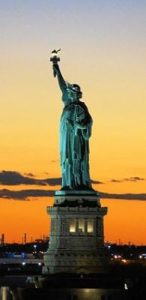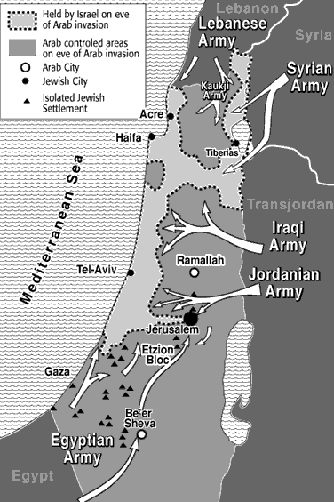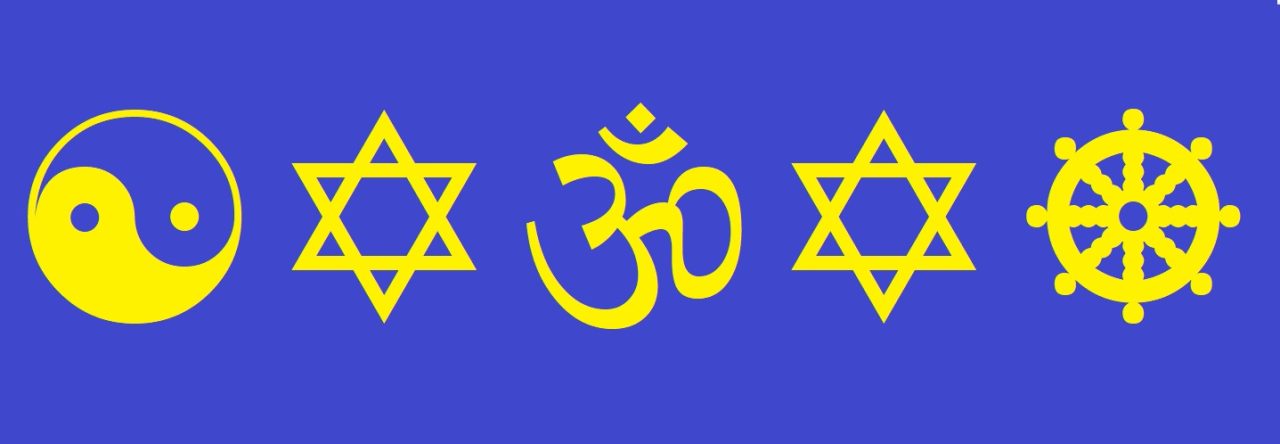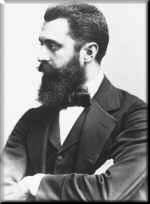The melancholy and disgraceful fact being established that, in these closing decades of the nineteenth century, the long-suffering Jew is still universally exposed to injustice, proportioned to the barbarity of the nation that surrounds him, from the indescribable atrocities of the Russian mobs, through every degree of refined insult to petty mortifications, the inevitable result has been to arouse most thinking Jews the necessity of a vigrous and concerted action of defense. They have long enough practiced to no purpose the doctrine which Christendom has been content to preach, and which was inculcated by one of their own race, when the right cheek was smitten to turn the left. They have proved themselves willing and able to assimilate with whatever people and endure every climatic influence. But blind intolerance and ignorance are now forcibly driving them into that position which they have so long hesitated to assume. They must establish an independent nationality …. I am fully persuaded that all suggested solutions other than this of the Jewish problem are but temporary palliatives.
The Jewish Problem, Emma Lazarus, The Century Magazine, February 1883
https://www.jewishideasdaily.com/docLib/20100204_TheJewishProblem.pdf
Emma Lazarus was not the first to embrace and articulate the idea of Zionism before the term had even been coined, which would not happen for another seven years after she wrote her 1883 essay The Jewish Problem, quoted above. It was Nathan Birnbaum who first used the words “Zionismus” and “zionistisch” in his German language journal Selbst-Emancipation (Self-Emancipation) in 1890.
 The name Emma Lazarus might not ring a bell, but you are certainly familiar with her work. She wrote the poem “The New Colossus”, which is engraved on the base of the Statue of Liberty. Lazarus published her first poetry collection when whe was just 18 years old (some of the poems had been written when she was just 14). In fact, Lazarus, who died in 1887 at the age of 38, would not live long enough to witness the the first World Zionist Congress, which took place in Basel, Switzerland, in August, 1897. That historic gathering was a direct result of the growing realization so clearly expressed by Lazarus that “all suggested solutions other than this [Zionism] of the Jewish problem are but temporary palliatives.”
The name Emma Lazarus might not ring a bell, but you are certainly familiar with her work. She wrote the poem “The New Colossus”, which is engraved on the base of the Statue of Liberty. Lazarus published her first poetry collection when whe was just 18 years old (some of the poems had been written when she was just 14). In fact, Lazarus, who died in 1887 at the age of 38, would not live long enough to witness the the first World Zionist Congress, which took place in Basel, Switzerland, in August, 1897. That historic gathering was a direct result of the growing realization so clearly expressed by Lazarus that “all suggested solutions other than this [Zionism] of the Jewish problem are but temporary palliatives.”
In addition to “Zionism”, another new word came into being around the same time: “pogrom”. The first occurrence of the Russian word “погром”, which literally means “to smash, to destroy”, might go back as far as the 1821 anti-Jewish riots in the Ukrainian city of Odessa, then part of the Russian Empire. But the term gained much wider international usage only in 1881 when anti-Jewish violence spread throughout the Russian Empire following the assassination of Czar Alexander II. From 1881 to 1885 there were an estimated 250 separate instances of violent mob attacks on Russian Jewish communities.
It must be emphasized that while the Zionist movement certainly arose as a response to antisemitism, Zionism has always been more than simply “anti-antisemitism”. Zionists, like Emma Lazarus, have always stated very clearly what Zionism is for: the establishment of a Jewish state in the ancestral homeland of the Jewish people. In essence then, Zionism is simply the radical idea that the Jewish people have the same right to self-determination as everyone else.
In the decades following Larazus’ 1883 essay, Zionism transformed from an idea into a reality. By the early 1940s, Zionists had succeeded in creating the Yishuv, a thriving community of over half a million Jews living in Palestine. Having established this solid foundation, Zionists hoped that a large portion of Europe’s Jews would begin immigrating to Palestine. But most of those Jews would be dead before this could happen (indeed, many were already dead, for, as Shmuel Ettinger wrote in A History of the Jewish People, even in the early 1940s Zionists had “not yet grasped the scope and nature of the Holocaust“).
Finally in 1947 the United Nations passed (by a 2/3 supermajority) Resolution 181 to partition Palestine into a “Jewish State” and an “Arab State”. While Jews in Palestine and around the world celebrated, the Arabs of Palestine, along with Arabs and Muslims around the world, vowed to fight to prevent such a thing as a Jewish State from ever coming into existence.

The Arab Invastion (image from jewishvirtuallibrary.org) https://www.jewishvirtuallibrary.org/background-and-overview-israel-war-of-independence
And so there was war. The Jews of Palestine were outnumbered 20 to 1 by the Arab League, then comprising (along with the Palestinian Arabs) the seven nations of Egypt, Iraq, Transjordan, Lebanon, Saudi Arabia, Syria, and North Yemen. The only real ally that the Yishuv had at the time was Czechoslovakia, from which they purchased the arms that they used to win their independence and establish the nation of Israel. In addition to the arms (which included fighter aircraft, rifles, machine-guns, and ammunition), Czechoslovakia also trained many of the air and ground troops who fought in what would become known as the Israeli War of Independence.
A major differences between the Arab and Jewish armies was that the Jews had nowhere to retreat to. Their only choice was to stand and fight where they were. But the Jewish forces did not simply hold their positions. Having been attacked on every side by forces that vastly outnumbered them, the Jewish fighters (who would become the Israeli Defense Forces) advanced on all fronts. And as the Jewish forces advanced, the Arabs fled their homes and villages. Many fled even before the fighting had started, especially the more well to-do.
Finally in 1949 Israel signed separate armistice agreements with Egypt, Lebanon, Transjordan, and Syria. These armistice agreements brought an official end to the shooting war, and established what are now known as the “pre-1967” borders of Israel. But despite the armistice every Arab nation, and especially the Palestinians, remained officially in a state of war with Israel.
Not surprisingly, those who had chosen to fight to prevent Israel from coming into existence in the first place were not welcome in the sovereign state that they were still at war with. These Palestinians had made two choices: (1) to take up arms against Israel, and (2) to flee to safety when the fighting turned against them (an option, it should be repeated, not available to their Jewish opponents). Obviously, the Palestinians who fled never dreamed, unless they were insane, that they would simply be welcomed back.
But Arab Palestinians did dream of “return”. However, this was not based on any notion they would somehow be allowed to peacefully return to Israel. Instead, Palestinians dreamed, and continue to dream, of finishing their war with Israel. Only now it could no longer be a war to prevent Israel from coming into existence in the first place. Having failed to prevent the founding of Israel, Palestinians now committed themselves to eradicating Israel.


Leave a Reply